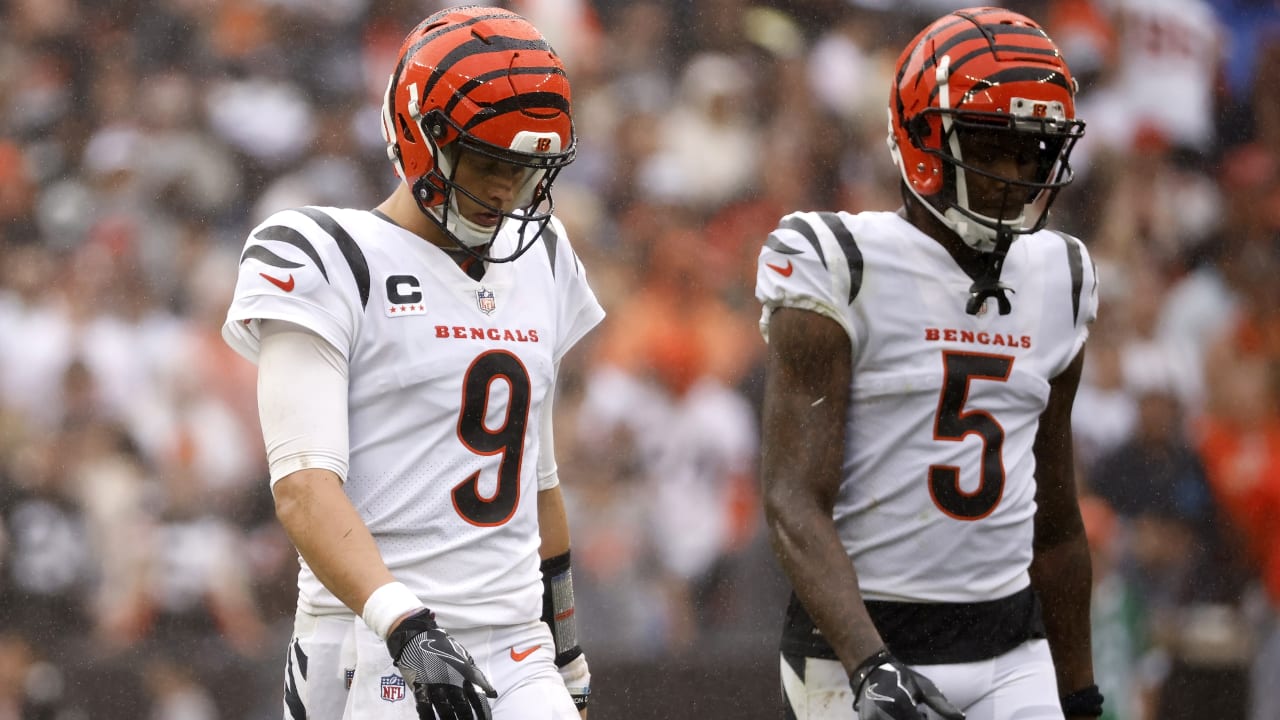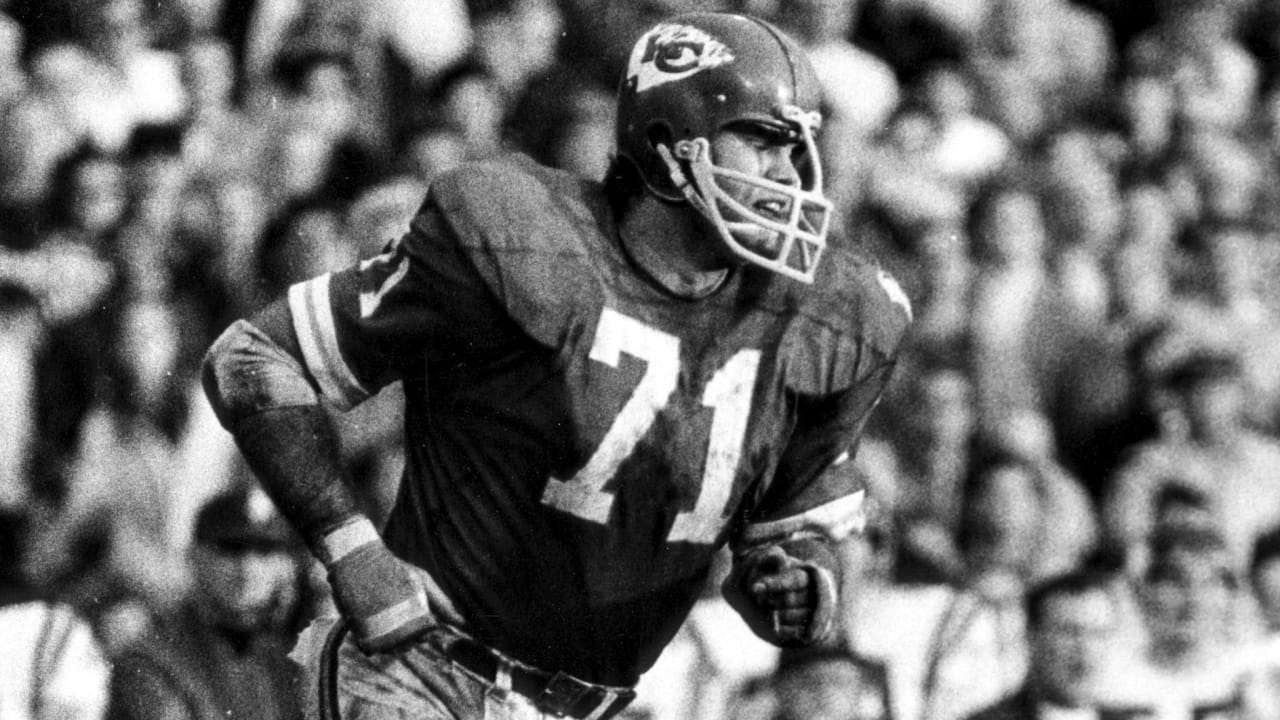Each week NFL fantasy researcher Joel Smyth will identify important stats and trends to inform fantasy decisions ahead of your next matchup. These won’t be your basic, elementary stats, but rather deep and unique insights to give you an edge over your friends (and enemies). Here are eight notable nuggets ahead of Week 2 of the 2023 NFL season.
1) Stay chill with Joe Cool
Related Links
- Week 2 NFL picks: Eagles unanimously predicted to beat Vikings; who wins juicy Ravens-Bengals bout?
- NFL Fantasy 2023 Start 'Em, Sit 'Em Week 2: Wide receivers
- 2023 fantasy football flex rankings: Top 150 RB/WR/TE options in Week 2
I know you’re not panicking about Joe Brrrr and his rain-drenched three-point stinker in Week 1 … especially since we’ve seen this before. The Bengals have been known to throw out dud games under Zac Taylor over the last few years. But there’s good news. Burrow had five games where he threw for fewer than 225 passing yards last season. In the weeks immediately following those games, he averaged just north of 325 yards. Plus, in the franchise quarterback’s young career, he’s averaged six fewer fantasy points in Week 1 games versus all others and four fewer fantasy points versus his Week 1 division rival, the Browns, versus other opponents. Moral of the story? The newly paid star is going to be just that for your fantasy team — starting in Week 2.
2) Tee’d off
And if we’re not panicking on Joe Burrow, the same goes for his top receiving weapons. In Week 1, Higgins led the entire NFL in team air yards share (on eight total targets), per Next Gen Stats. For the newcomers, air yards are an analytics statistic that measure the distance the ball travels in the air on a target, from the line of scrimmage to the catch point (whether or not the pass is completed). A high team air yards share means a receiver was heavily involved from a volume standpoint and specifically downfield, where fantasy points abound. With that kind of output from Higgins, we should expect 20 fantasy points weekly — which would make sense, as he averaged 20 points in games with eight-plus targets last season. Instead, he scored zero in the opener. Zip. Nada. The deeper stat tells us he is highly likely to return to excellence very soon. Don’t fade him after one fluky week.
3) Puka and Flowers bloom early
It’s rare to see a single rookie receiver dominate volume in their first career NFL game. This year, we got two. Rams wideout (and waiver wire darling) Puka Nacua had the most targets in a rookie debut (15) since targets became a stat in 1992. Meanwhile, Ravens first-rounder Zay Flowers joined the party as well, leading the NFL with a 48 percent target share (i.e. he drew nearly half of Lamar Jackson’s pass attempts on Sunday). The worry here? History has shown that this kind of Week 1 boom doesn’t always result in season-long fantasy glory. Fourteen rookie receivers have received double-digit targets in Week 1 of a season since 1992. Only three — Anquan Boldin, Dez Bryant and Michael Clayton — averaged double-digit fantasy points per game over the course of the full season. And of course, it’s worth noting that Cooper Kupp could return at some point for the Rams and Mark Andrews could be back for the Ravens as early as this week. These youngsters may have already logged their highest volume games of the season.
4) If you’ve got two, you’ve got none
The Rams’ offense was dominant in Week 1, seemingly out of nowhere. Chief among the surprises (besides the aforementioned Puka Nacua) was sophomore standout Kyren Williams, who accounted for nearly 70 percent of the snaps at running back, vastly outplaying incumbent starter Cam Akers, who logged a third of the snaps. And yet, even on those limited snaps, Akers finished with 22 carries. Unfortunately, where the rubber met the road for Akers was the efficiency. Since 2010, there have been 1,642 instances of a running back hitting 20-plus carries in a game. Akers’ 29 rushing yards in Week 1 ranked 1,640th of 1,642 on that list. He also garnered zero targets and ranks 45th of 47 qualified players in yards per touch since his Achilles injury in 2021. All in all, if he can’t right these efficiency wrongs, Akers has a bleak future for fantasy.
5) Bell cow Pollard activated
Pollard is exactly who we thought he could be. After years of efficient work behind a declining Ezekiel Elliott, we prayed and hoped for true bell-cow work, and we got it — and more — in Week 1 of the post-Elliott era. Pollard earned 21 of 24 first-half snaps (before an embarrassing blowout of the Giants led to rest for the starters), 100 percent of the goal-line work, 100 percent of the running back targets and a pair of rushing touchdowns. His four goal-line carries last week are already more than half the total he amassed in 16 games last season. Remember, even a post-prime Elliott scored a now-vacated 12 rushing touchdowns last season. Those scores look to be all Pollard’s in 2023 — which, combined with his own nine TDs from last year, make him a legitimate threat for 20-plus tuddies.
6) Jordan Add-him-son!
Another rookie wide receiver, Jordan Addison is my No. 1 “buy now” target following the first week of the 2023 season. He and fellow Vikings wideout K.J. Osborn had six targets each behind the dominant Justin Jefferson. However, Addison and Osborn were much less aligned on both playing time and production. While the veteran Osborn played 90 percent of Minnesota’s offensive snaps, the 21-year-old Addison played only 55 percent in his NFL debut. And yet, Addison finished with 16 fantasy points, while Osborn only managed six. As Addison progresses through his rookie campaign, those snap shares will likely flip. And on an offense that ranked third-highest in pass rate last season (throwing more often than almost any team in football), usage like that, combined with his talent, could make Addison a consistent WR2.
7) London has fallen
There were some positive statistics to note when evaluating Drake London’s chance at a 2023 breakout: He was first in team target share with Desmond Ridder at QB last season, averaging 83 yards and nearly 14 fantasy points in Ridder’s four starts. Then London goose-egged in Week 1. And unlike Tee Higgins’ goose-egg, where the deeper stats suggest a rebound is on the horizon, things are bleak for London. In Atlanta victories since London joined the team in 2022, the Falcons have thrown the ball on an incredibly low 41 percent of plays. Plus, last week, Ridder’s first read on the small sample of pass plays went to the running back position nearly half the time. That means when the Falcons are passing, they’re largely focusing the play design through the backfield. London had eight-plus targets in all four games with Ridder last season. Having only a single target in Week 1 — and no catches — is grounds for a little bit of reactionary panic.
8) 49ers’ new, hot connection
The No. 1 fantasy player in Week 1 — and arguably the best player period — was Tyreek Hill, who seemed to gain 30 yards every time he touched the ball. Unsurprisingly, Hill leads the NFL with 3.51 yards per route run since the start of last season, per Next Gen Stats. Yards per route run is one of the best and stickiest metrics for predicting breakout success with receivers, as it highlights success rate over smaller game samples, even when a player has yet to get the volume of an elite stud. So where does Brandon Aiyuk fit into this picture? Well, in six games with Brock Purdy at quarterback since 2022, Aiyuk has averaged 2.88 yards per route run, ranking second in the league behind Hill. In that six-game sample, Aiyuk has also averaged 16.7 fantasy points per game, 10th among wideouts since last year. He has outclassed Deebo Samuel in volume, production and touchdown upside in this Niners offense and is a legitimate stud for fantasy.
Source: Read Full Article














